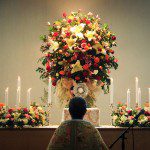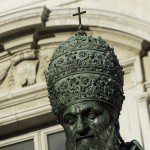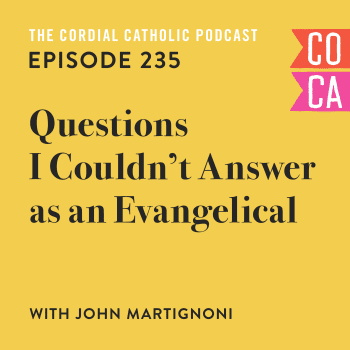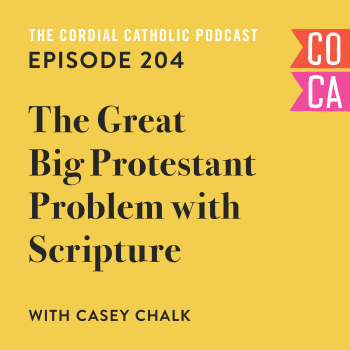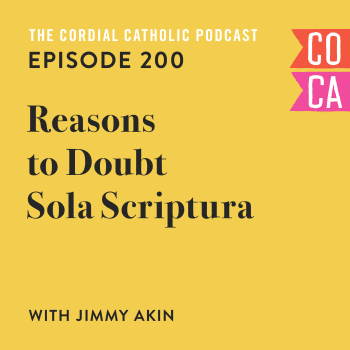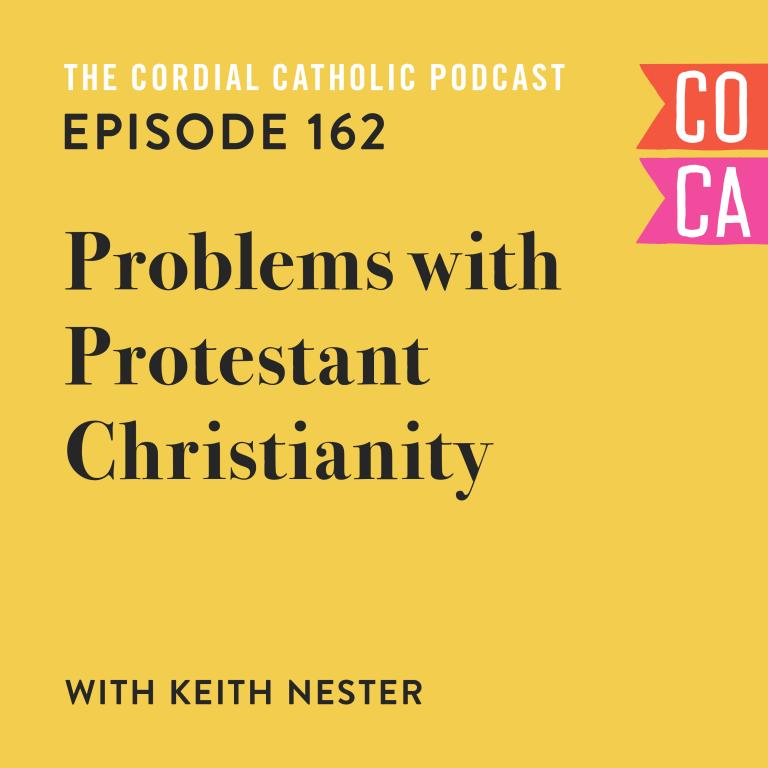
There is a danger in the draw of authority. There is a deep danger is just being told what to do, and doing it. That danger is real. That danger has led to countless conflicts and abuses across the pages of history. That danger leads to abuses and conflicts today.
One of the common concerns I hear, when someone finds out that I’m becoming, of all things, a Catholic, is that Catholicism is a faith in which one is just told what to do. A faith where you follow a bunch of arbitrary rules and go to Heaven. Sure, this wouldn’t be the objection of many of my closest friends (and most charitable readers) but it’s sometimes in the backs of the minds of a surprising number of people.
So, let me tell you why I’m so excited to be told what to do and why this fish is headed for the water.
I “grew up” Christian while in high school. It was in the summer after Grade 9 that my best friend introduced me to Jesus in a real way and I started living a Christian life.
Not having actually grown up Christian I learned a lot about the faith a little later than most of my Christian peers, those that grown up in a Christian household. It was a boot camp for me—trial and error, sometimes—but it also made me more zealous for my faith. While my friends had had years to cool down on certain doctrinal aspects of our faith, it was all new to me and I was as fired up as could be.
I was a teenager; it’s embarrassing to imagine.
We had heated debates about the kinds of topics that teenage Christians might have debates about from moral quandaries like alcohol to theological barn burners like antilapsarianism. We were a particularly advanced bunch. Often times, when debates dragged into weeks of cafeteria conversations and we couldn’t agree one of us would muster up the courage to approach our pastor. Or, rather, our associate pastor. No one ever mustered up the courage to approach the guy who was really in charge.
At any rate, the associate pastor would make his ruling, those on his side of the debate would cheer, the rest would grumble, and several of the grumblers would find a loophole.
This was the way it went because there was always someone, somewhere, from a more liberal or a more conservative faith community (depending on the topic in question) who would agree with the losing side. On predestination, the losers would appeal to their Presbyterian uncles. On alcohol, the Missionary Alliance folks always bought the beers.
Since beginning my journey into Catholicism I’ve watched several hundred hours of videos on YouTube but it was a good friend who came across a debate between Jesuit Father Mitch Pacwa and Reformed Pastor James White on the topic of sola scripture, the authority of the Bible alone. The debate is fairly typical but really shifts gears at the end. In his closing arguments, James White, a strict Calvinist, brings up a suitcase full of Catholic Church teaching and books on canon law and dramatically hefts the texts, one by one, onto a table.
“That’s a big stack of books,” he says. “That’s an awful lot of reading.”
Before beginning to plum the depths of the Catholic Church and to understand its theology better I would’ve agreed. In high school, certainly, we would’ve understood the Catholic Church to be an empty religion composed of merely that: rules. Rules, regulations, and an awful lot of reading.
Meanwhile, we appealed to our pastors (and whoever agreed with our positions).
But as if James White’s unfortunate appeal to props didn’t already do him in, Father Mitch Pacwa, his Catholic opponent, roundly undoes his argument.
“Yes, that’s a lot of reading,” he says, “But aren’t there new problems? And doesn’t the Church have the need to speak about new problems?”
James White was right, the Catholic Church has a lot of rules and reading but Father Pacwas is righter. There are things the Church needs to speak about.
Here’s what I mean.
From an outside perspective the Catholic Church has a lot of rules. From an outside perspective the Protestant community I ran with in high school had a lot of rules too. From an outside perspective Jesus said a lot of stuff that a lot of people might not like.
If, as Catholicism asserts, Jesus founded his Church on Peter and Peter was the first pope and that authority never passed away but instead passed on until today then that Church still has the authority to speak to our faith. If what Catholicism says is true, God left us a Church and not just a Bible. If what Catholicism says is true, God gave us an organic Tradition and an authority to teach and interpret. If what Catholicism says is true, there is someone to appeal to, there is someone who knows the best rules.
Because for the first time in my Christian life, if I believe what Catholicism says is true, I can rest in the assurance that what I’m being told to do is what I should do.
As a Protestant in high school I didn’t live in a world with less rules than a Catholic, I lived in a world where I could find a way of bending the rules I didn’t like—a world where if my Pastor didn’t agree with my interpretation of a certain rule I could find someone elsewhere that did.
Now don’t get me wrong, there is diversity in the Catholic tradition (is there ever) but there is unity, under the teaching authority given to the Church by Christ.
And if my goal, as a Christian, is to live a life according to Christ isn’t that best done in the Church He gave the authority to? The Church He left with the power to tell us how best to live according to Him?
Imagine this.
Imagine that God inspired the Bible and that we’re to do our best job interpreting it in this fallen world.
Then imagine that God inspired the Bible and gave us the Church—this assurance—to definitively work it all out.
If a fish lives best in the water—if we live the best live living according to Christ’s principles—how do we best know what to do? Do we work it out for ourselves? Do we work it out in a community that best suits us? Or is it possible that God gave us a Church with the authority to know?
The picture of an organic body, infused and preserved over time by Christ, with the authority and ability to teach me how to live is a picture of beauty. That’s a river I’m excited to swim in.

